#Sir Richard Gregory
Text
#shakespeare#william shakespeare#bbc#first folio#including Dame Judi Dench#Dame Helen Mirren#Brian Cox#Adrian Lester#Lolita Chakrabarti#Martin Freeman and Jessie Buckley#Sir Richard Eyre#Sir Simon Russell Beale#Sir Ian McKellen#Dame Janet Suzman#Gregory Doran#Russell T Davies#Eloka Ivo#bbc four
7 notes
·
View notes
Text
Why Benophie season is the perfect way to finish the first half of the Bton stories?
Now that Benophie season is unofficially confirmed, I've come to the conclusion that this was the greatest way to end the first half of Bton. It needed to be s4.
In the ton, marriage is about status. And while all Bton marriages are love matches, they are also incredibly beneficial for their position in society. The ENTIRE family's position in society.
Anthony is a viscount, an influential one, but in the nobility hierarchy, he's second to last.
Daphne climbed up 3 steps when she married Simon and became a Duchess.
Francesca will climb one step when she marries John.
Kate didn't have a title or wealth, but a married Viscount is an improvement over a rake Viscount.
Colin is only a Mr., but I will be surprised if the Featherington baby race doesn't end with Pen having a boy who will become Baron. He's going to be the father of a Lord thanks to Penelope.
So you can see how these marriages are extremely beneficial to them and elevate the entire family. Daphne understood this when she said that her marriage would set the prospects for her sisters. Anthony also knew that his choice of viscountess would affect the family.
So, by the time Benedict meets Sophie, the family will have a viscounty + relations with a duchy, an earldom, and a barony. They just need a march to have the full set.
Enter Benedict who will fall in love with a servant AND an illegitimate daughter.
If he marries her, he risks undoing all the work his siblings have done to maintain the family in good standing.
The book doesn't address this, but I wish the show would. It would add another dimension to Benedict's reasons to not marry Sophie. He would be thinking of the family. What would happen to Eloise, Hyacinth, and Gregory? They will no longer be siblings to nobles, they will be related to an illegitimate child and servant. Who will want to marry them? Is it fair to affect their prospects when they haven't even had a chance at society? (Read The Secrets of Sir Richard Kenworthy) Perhaps it hurts the already-married siblings too.
I'm thinking about Ben and Violet's scene. Sophie refuses to be a mistress and Ben has already decided to marry her. But there's still this issue lingering. Is it right to drag the whole family to get what he wants? Wouldn't that be the most selfish thing anyone could do? In the book, Violet says this,

Imagine if she adds, "and your siblings will support you too."
EDIT: The thing about this scene is that Benedict was ready to leave if the family didn't support him and Sophie.
This is also a great way to bring back the Sharmas' background. Mary was cast out for marrying a clerk, leaving Edwina in an unfavorable position. If the Queen hadn't named her the diamond, it would have been very difficult for her to get a good match. Not to mention that Mary's parents considered hated Kate and insulted her parents for being common people.
You can see why Benedict is afraid of the family's reaction. The Sheffields said that after Mary left, they couldn't show their faces in London for years. He wouldn't want to do that to his family. Sophie wouldn't want that either.
This is why it is so great to have Benophie come in s4. Not that a duchy and a viscount wouldn't have been enough, but this way is much more dramatic and LEGENDARY.
Despite the risks, the family will support Benedict AND Sophie. They'll support her too cause they know her and they love her even before they knew about Ben's feelings.
It's a test, not only for Benedict but for the family.
MORE EDITS:
I also think that Queen Charlotte will hate the Bridgertons after s3. She has been trying to arrange their marriages for 3 seasons, and they have all ignored her and made their matches independently. So, maybe Benedict will be worried because his marriage to Sophie will only worsen the situation.
#benophie#bridgerton#benedict bridgerton#sophie beckett#kanthony#polin#franJohh#violet bridgerton#aofag
273 notes
·
View notes
Text


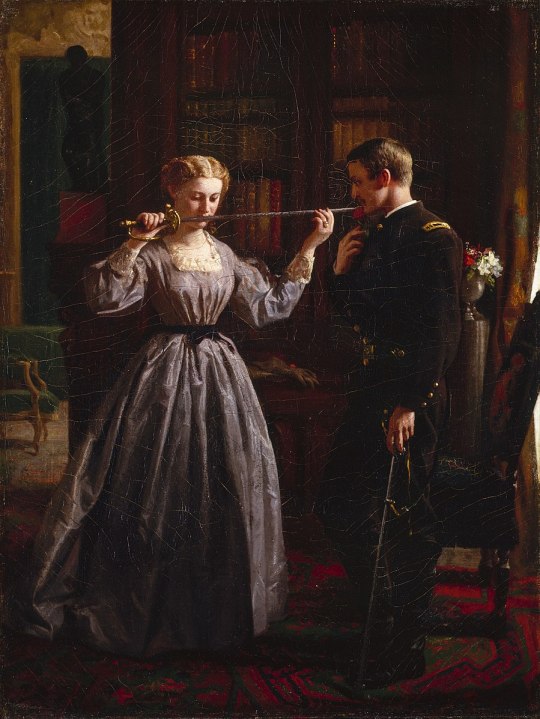

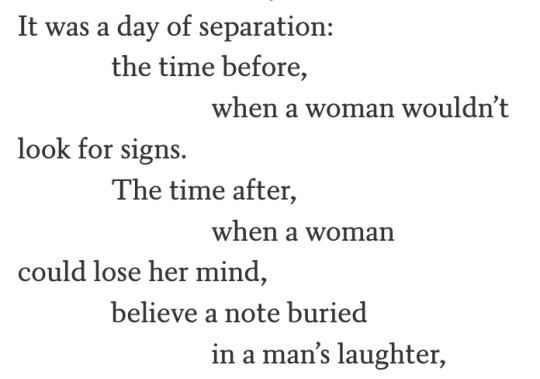
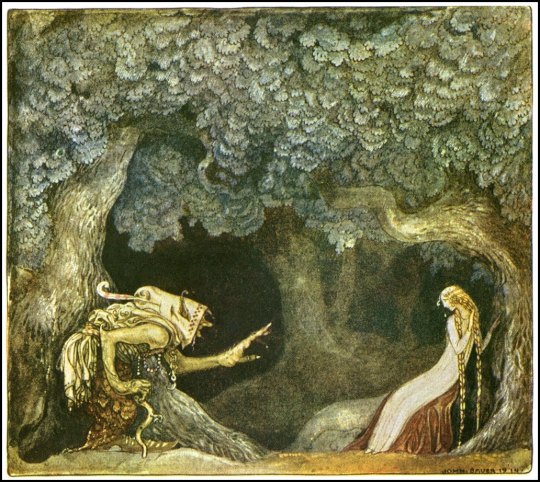


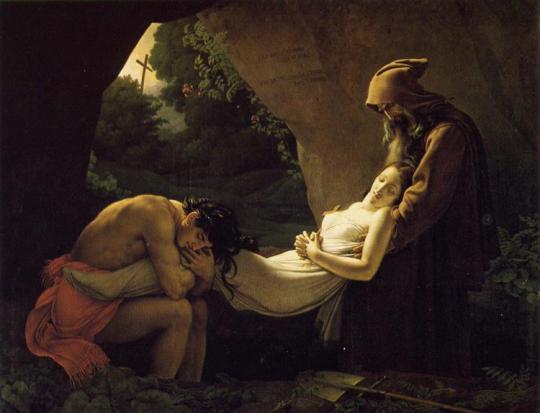

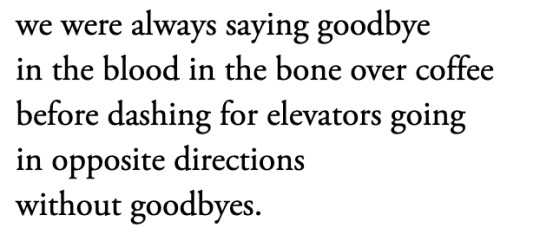
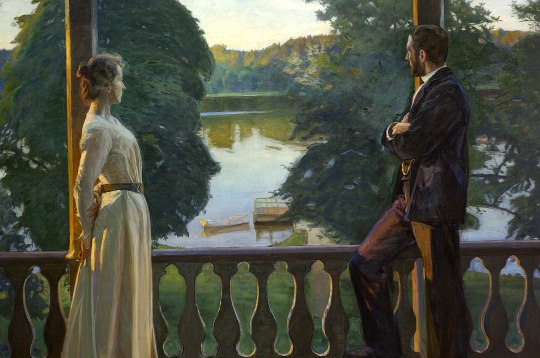


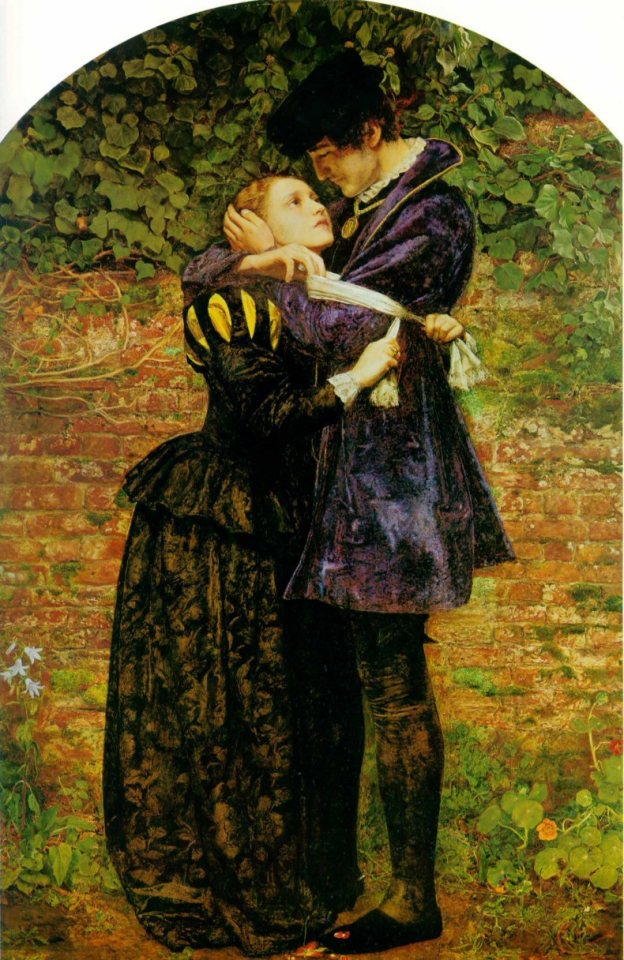


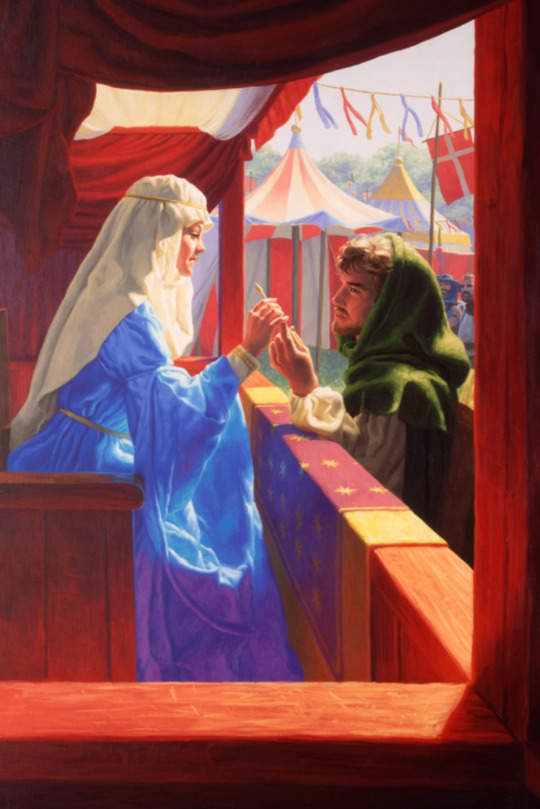

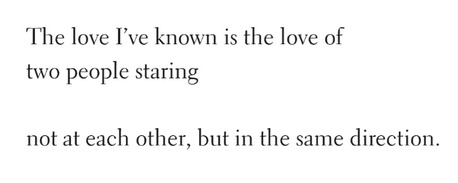
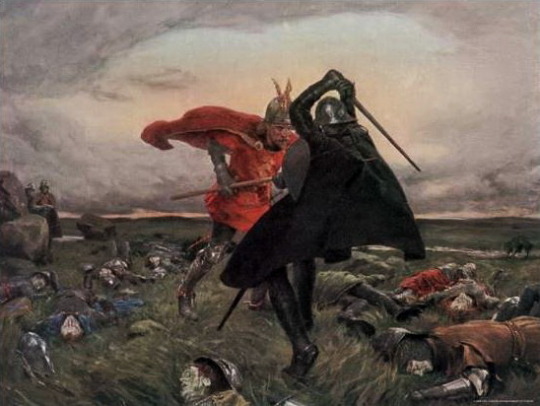
Jaime + Brienne + unbidden
Jaime I, AFFC / Jenny Xie, Distance Sickness / George Cochran Lambdin, The Consecration / Brienne II, AFFC / Honorée Fanonne Jeffers, Memory of One Day in a Kitchen / John Bauer, If someone else cries when you laugh then you will have your tears back / Jaime I, ADWD / Jack Gilbert, The Sixth Meditation: Faces of God / Anne-Louis Girodet, The Funeral of Atala / Brienne III, AFFC / Audre Lorde, Movement Song / Richard Bergh, Nordic summer’s evening / Jaime I, AFFC / Sally Rooney, Normal People / John Everett Millais, Huguenot lovers on St. Bartholomew’s Day / Brienne VIII, AFFC / Arundhati Roy, The End of Imagination / Gregory Hildebrandt, My Thanks To You / Jaime VI, ASOS / Frank Bidart, To The Dead / William Hatherall, The Battle Between King Arthur and Sir Mordred
159 notes
·
View notes
Text
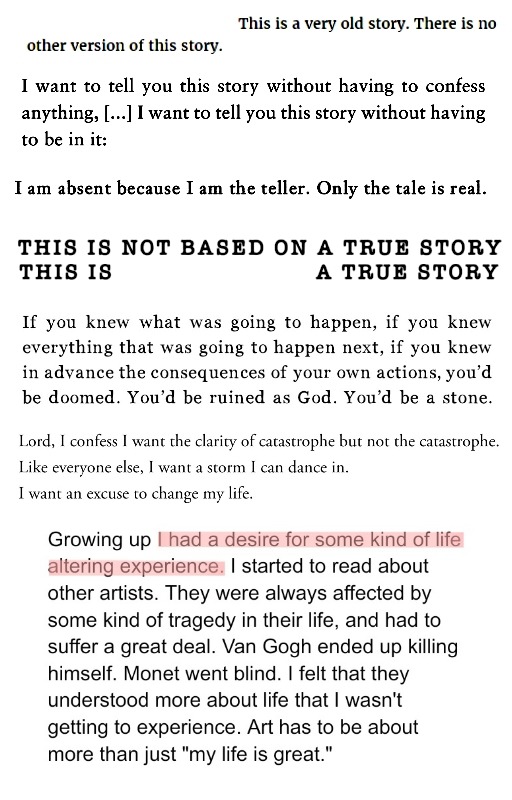

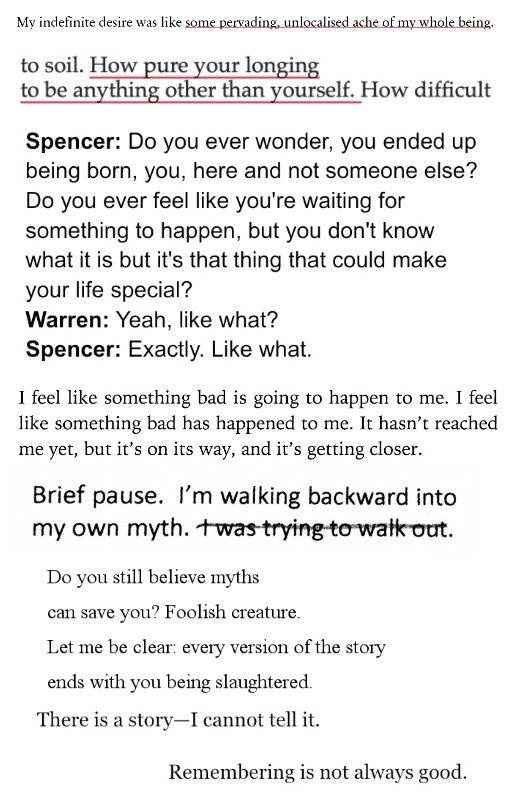

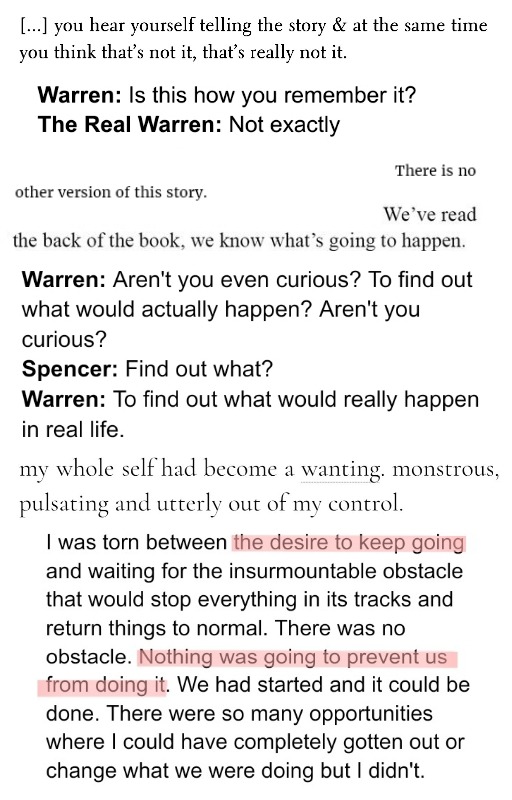

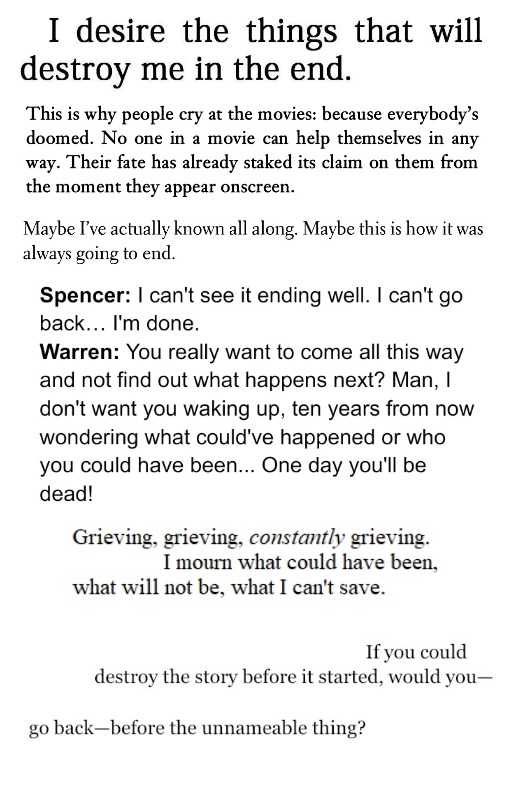
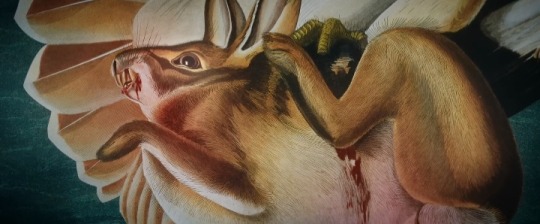
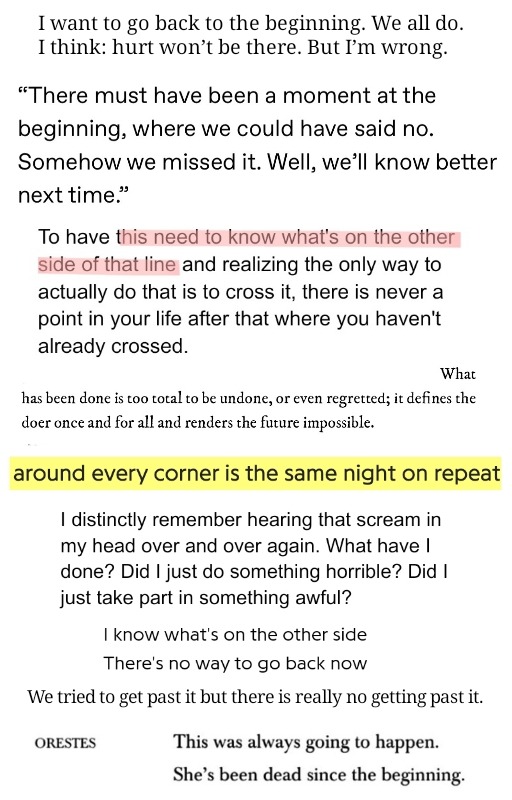
desire and doom and american animals
the worm king's lullaby, richard siken // the torn-up road, richard siken // the book of questions, edmond jabès (tr. rosemarie waldrop) // american animals dir. bart layton // the blind assassin, margaret atwood // catastrophe is next to godliness, franny choi // birds of america, john james audubon // olivia, dorothy strachey // lucifer at the starlite, kim addonizio // lake mungo dir. joel anderson // h of h playbook, anne carson // anecdote of the pig, tory adkisson // dog woman, chris abani // entry for not an island, gabriel jesiolowski // snow and dirty rain, richard siken // @/gaycommunist // the unabridged journal of sylvia plath, sylvia plath // wolf in white van, john darnielle // i'm thinking of ending things, dir. charlie kaufman // blud, rachel mckibbens // concerning the book that is the body of the beloved, gregory orr // rosencrantz and guildenstern are dead, tom stoppard // the gods show up, michael kinnucan // haunted house, sir babygirl // revolver, zach villa // the oersteia, aeschylus
#mine#web weaving#anyway everyone go watch American Animals#there's so much more stuff I wanted to add to this but I didn't have enough room (or energy)#🦩
237 notes
·
View notes
Text

Rebus – BBC picks up new series
BY IAN MCARDELL FILED UNDER NEWS
Richard Rankin takes on the role of the famous Scottish detective
The BBC acquired the Scottish crime drama Rebus. Made by Eleventh Hour Films for Viaplay, and based on Ian Rankin’s novels, the series stars Richard Rankin (no relation) in the title role.
The detective has been previously played, as an Inspector, by both John Hannah and Ken Stott.
Rebus
The six-part series has been adapted for the screen by Gregory Burke who reimagines the character earlier in his career. Detective Sergeant John Rebus is drawn into a violent criminal conflict that turns personal when his brother Michael, a former soldier, crosses the line into criminality. Rebus finds himself torn between protecting his brother and enforcing the law to bring Michael to justice.
Gregory Burke To Adapt Ian Rankin’s Rebus Series as Eleventh Hour Drama Black Watch. Both adaptations, have Richard Rankin’s participation. Based on interviews with former soldiers, it tells the story of troops from the then Black Watch regiment serving in Iraq. The play toured around the world and went on to win four Olivier Awards.
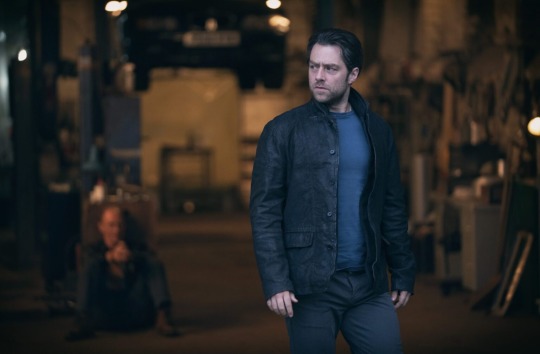
Richard Rankin as John Rebus (Image: Mark Mainz/Eleventh Hour Films)
The series promises to explore family, morality and class in an emotionally charged story, set against the Scottish landmarks that Rankin’s readers know so well.
Joining Richard Rankin (Outlander), the series also stars Lucie Shorthouse (Bulletproof), Brian Ferguson (The Ipcress File) and Amy Manson (The Nevers). Plus, Neshla Caplan, Noof Ousellam, Stuart Bowman, Caroline Lee Johnson, Sean Buchanan, Thoren Ferguson and Michelle Duncan.
Filming took place in Glasgow and Edinburgh last year.
Author Ian Rankin says:
“I’m thrilled that Rebus is coming to the BBC. A great cast and a compelling story – I really can’t wait for viewers to see it.”

This is the first time the BBC has adapted Sir Ian Rankin's detective novels. 📸 Getty Images
Actor Richard Rankin adds:
“I am thrilled that Rebus will premiere on the BBC. It’s been an honour taking on the role of Ian Rankin’s renowned John Rebus. A character enjoyed by so many in such a fresh and original adaptation.”
The six-part series is directed by Niall MacCormick (Wallander) and Fiona Walton (Shetland) and is produced by Angela Murray. Paula Cuddy, Jill Green, Eve Gutierrez, Tomas Axelsson, Isabelle Hultén, Niall MacCormick, Gregory Burke and Ian Rankin are the Executive Producers.
Rebus will air on BBC Scotland, BBC One and BBC iPlayer later this spring.

I'm waiting and watching 🍿
#Rebus #BBCScotland #BBCOne # BBCiPlayer #JohnRebus #DetectiveSergeant #Ian Rankin #novel #RichardRankin #EleventhHourFilms #Viaplay
29 notes
·
View notes
Text
Bridgerton book Guide
Julia Quinn
Prequels -
The Rokesby Series A Generation before the Bridgertons,
They were the Rokesbys
2016 Because of Miss Bridgerton Billie Bridgeton and George Rokesby
2017 The Girl with the Make-Believe Husband Cecilia Harcourt and Edward Rokesby
2018 The Other Miss Bridgerton Poppy Bridgerton and Andrew Rokesby
2020 First Comes Scandal Georgiana Bridgerton and Nicholas Rokesby
Collaboration
2023 Quenn Charlotte Quenn Charlotte and King George
Bridgerton Couple
2000 The Duke and I Daphne Bridgerton and Simon Basset
2000 The Viscount who loved me Kate Sheffield and Anthony Bridgerton
2001 An Offer from a Gentlemen Sophie Beckett and Benedict Bridgerton
2002 Romancing Mr. Bridgerton Penelope Featherington and Colin Bridgerton
2003 To Sir Phillip, With Love Eloise Bridgerton and Phillip Crane
2004 When he was Wicked Francesca Bridgerton and Michael Stirling
2005 It's in His Kiss Hyacinth Bridgerton and Gareth St. Clair
2006 On the Way to the Wedding Lucy Abernathy Gregory Bridgerton
Epilogues
2013 The Bridgertons: Happily Ever After All + Violet Bridgerton
Bevelstoke Series (they know the Bridgerton I believe)
2007 The Secret Diaries of Miss Miranda Miranda Cheever and Viscount Turner
2009 What Happens in London Olivia Bevelstoke and Harry Valentine
2010 Ten Things I love About You Annabel Winslow and Sebastian Grey
Lady Whistledown
2003 The Further Observations of Lady Whistledown Susannah Ballister and David Earl of Renminster Thirty-Six Valentines
2004 Lady Whistledown Strikes Back Everyone The First Kiss
2021 The Wit and Wisdom of Bridgerton: Lady Whistledowns Official Guide Everyone
Ghraphic Novel
2022 Miss Butterworth and the Mad Baron Miss Butterworth and the Mad Baron
Not fully Bridgerton but in same Universe
The Smythe-Smith Quartet (Not fully Bridgerton but in same Universe)
2011 Just Like Heaven Honoria Smythe-Smith and Marcus Holroyd
2012 A Night Like This Anne Wynter and Daniel Smyth-Smith
2013 The Sum of All Kisses Sarah Pleinsworth and Hugh Prentice
2015 The Secrets of Sir Richard Kenworthy Iris Smythe-Smith and Richard Kenworthy
18 notes
·
View notes
Text
Title: Penace
Summary: “If you think I am Walter, I will show you, Walter!” He cries, and Thomas freezes, his eyes are filled with fear. Rafe has never seen his master so afraid."
/
Moments before the final blow ends Thomas’ life, a herald arrives with a letter bearing the King’s seal, granting Thomas a reprieve.
Unfortunately, Henry’s mercy has its limits. Thomas survives the pain of a botched execution, yet Rafe, Richard, and Gregory live through the consequences.
And in attempting to fill the shoes of Thomas Cromwell, Rafe accepts it is a battle he may never win.
Let me take over. The thought aches in Rafe’s chest and he is wise to keep it there. It is rare for Gregory to mutter obscenities, but as his trembling hands make apprehensive strokes upon the mangled back of what one might assume to be the lifeless husk of Thomas Cromwell, Gregory lets out a string of swears. The elder Cromwell jerks away for the fifth time.
Rafe sighs.
“Gregory-”
“No.” He is my father, I need to do this, is what he means to say.
Rafe leans against the wall and in silence watches this tragic plot transpire.
It is Augst 2nd, 1540 and his master has woken from his coma following his poor timed reprieve.
On July 28th, the page boy, accompanied by a guard, makes it to the scaffold moments after the ax is lodged into his back a second time. The letter carries the king's seal, and the rushed yet careful words read as if they are spoken from the uncertain, yet repentant mouth of Thomas Wriothesley. The crowd disperses, muttering in anger and disappointment. Rafe remembers thinking how demonic they are, so frantic to see his master butchered.
Rafe ponders on the conversation between those fools and wonders what exactly was said by Risley to command the king’s regret. Rafe knows he should be thankful for their intervention, and if it stopped there, perhaps he would have been.
But the king is frivolous, and a reprieve does not mean forgiveness, even for Thomas Cromwell.
Rafe returns to Agust, and stares on in silence as his master sits hunched over in a chair, soiled shirt lifted, revealing the deep scars sown into his back. Gregory is behind him, as dutiful a son as he attempts to be, dabbing a sterile cloth in a bucket of a warm, alcoholic water mixture and then with great care, tends to Thomas’ wounds.
Through the pain and the weeping, and the drenched gray and black curls that haphazardly fall over his face, dark pupils catch Gregory in their path.
Once again, he flinches and jerks away from his son.
“Father.” His voice trembles. In sadness, in anger? Rafe supposes it’s both. He does not blame Gregory for the cesspool of emotions swelling within the pits of his chest. He’s tired, his body shakes, his steps are heavy, and all his money and efforts have been spent on this moment. Bargains, pleas to the king, his estates and titles given up to please the burned ego of His Majesty and the new queen; Gregory’s own wife having had left him in the process.
For Thomas, Gregory has become a pauper.
“I don’t want you, you are no son of mine,” Thomas mutters in the silence; it is enough for Gregory to stop. “I want Rafe.”
Thomas, cannot stand his son’s touch.
Gregory pauses, cloth still hovering over Thomas’ back. His eyes glisten, and he does not cry only silently motions to Rafe, who comes and takes over. Gregory leaves and Thomas does not say a word.
“It’s alright sir, I’ve got you”
The door closes and Gregory is gone.
For Rafe’s part, he is no stranger to this. He stands behind Thomas and picks up where his wayward brother left off. The solution from the cold rag falls down his wrist, and gently he scours the wounds upon his master’s back. Thomas does not flinch or push him away. It is as if his body eases, and the threat of an uncomfortable force is no longer upon him.
Still, Thomas shakes. The frigid air stings his wounds, and Rafe quickens his deed. Within an hour, the bandages are changed and he helps Thomas back to his bed. It does not take him long to fall asleep, and his body trembles in pain with every breath that escapes his lips. Rafe fears it will be his last.
Now, however, he must tend to the younger Cromwell.
__
Gregory has exiled himself to a storage room, and he stands by the window, leaning over with his hands resting upon the ledge.
He is quiet, though his shoulders shake and his head hangs low. Rafe can tell that he is weeping.
“Gregory.” Rafe disturbs the silent isolation he supposes Gregory preferred, but the young Cromwell turns in his direction, wiping his eyes. There is a small movement of what Rafe figures is a letter, stuffed into Gregory’s jacket.
“Rafe, how is he?”
Gregory arranges his face in a way dissimilar to his father's. He does not hide emotion behind a stone-like facade. Rather he smiles. Eyes puffy beneath, breath still shaky, Gregory erects a smile so unsettling, Rafe does not know what to say.
So he speaks only the truth. “He is fine. May I come?”
Gregory nods as if speaking now causes too much pain. So Rafe saves him the trouble and pulls him into a hug as if he has embraced one of his own children. Though Gregory, now twenty is a grown man, Rafe can only see the child he helped raise before him. The boy trembles in his arms and when he is sure they are alone, he allows himself to cry.
He does not make legible words, but Rafe gathers ‘Why doesn’t he want me?’ ‘Why do I frighten him?’, and his eyes, pained yet beautiful scream ‘I gave him everything, and I lost everything, and I am still not enough’.
“Shh.” Rafe whispers into silence, his embrace upon the younger Cromwell tightening. He feels his strength beneath his shirt, the muscles that have marked his transition from boy to man, and yet all Rafe holds is a child. The child who ran to him at night during storms, the child whom he taught to read when his father and mother were away, the child that in some instances did not know whether to call him ‘Master Saddler’ or ‘Brother’.
Either suffices, but Rafe feels a different connection now. A father of his own making, he realizes that Gregory has lost his.
He holds him tighter and gently places a kiss on Gregory’s forehead as if he is a parent, chasing away the nightmares of a shaken toddler.
“It will pass,” Rafe says softly, cupping Gregory’s face in his hands. He sniffles and gasps, and tears pour down his cheeks, Rafe speaks. “My Master…your father he is…” He is not there, and his mind has perhaps gone to heaven. We do not know the man who lies in the bed in pain, who cries himself to sleep at night, who calls you Walter, who refers to Richard and me as his sons, who asks why the King was so cruel to him. But we can’t hold it against him, he wants to tell Gregory. We cannot hold him accountable for what the King did to him.
But Rafe knows that is true only for this moment. For Gregory’s life, the struggle for his father’s affection has been constant.
Rafe would never presume to take the place of his master, but for now, perhaps, Gregory needs a tender father.
He still holds Gregory’s pale, child-like face in his hands and wipes the tears with his thumbs. He starts to see the timid boy once again, even beneath the facial hair and flushed cheeks.
“There you are, Gregory.” He smiles. “Helen may have prepared dinner, if you go down, I will meet you there.” He holds Gregory until the younger man nods and musters some form of smile. “And now no more. Hold your head high. It will be well.”
He releases him and prays that things will go well.
–
Richard comes the next day and as Rafe fears, things do not go well.
It is not uncommon knowledge, that since the ill-timed reprieve and even before that, when first Thomas was arrested, Richard harbored some sort of resentment toward his cousin.
“Why did he not come to visit his father, my uncle in the Tower?” Richard had once asked Rafe.
“Thomas told him not to. And before you say anything else, he also instructed Gregory and Bess to write that letter against him.” Rafe had responded.
“My uncle would not have wanted you to go, but still you went.”
You didn’t visit him in the tower either, Rafe had wanted to say, but he knew that would be fruitless. It was evident that if Richard stepped within a foot of the tower, he would’ve turned to violence, and would have had a place right next to his uncle.
The truth, however, is that on that day, Gregory did not want to come. Rafe had repeatedly asked Gregory to join him in the tower, and Gregory refused. In fact, to a random wanderer, Gregory’s lack of reaction to hearing of his father’s execution would cause concern, or even a seed of doubt in the fact that Gregory was in fact, the son of Thomas Cromwell. He simply did not care, nor show any emotion.
While it pained Rafe, Gregory’s reaction, or rather a lack of one, made sense to him.
It is how the young Cromwell coped. How was one supposed to react to hearing of the oncoming execution of their father, wherein, the lack of a concrete relationship clouded any form of empathetic emotion? Thomas was Gregory’s father in name; he knew he had the man’s curly hair, dark eyes, and pale skin, he knew those around him would call him ‘Thomas’ if he passed them quickly, only to correct themselves. Most of the time it does not impact him. (Though when Call Me Risley, well rather Wriothesley, had made that mistake once, Gregory lashed out, and Rafe still does not know why that angered Gregory so much).
Back then Gregory prepared to mourn both his father and the unattainable relationship he yearned for with his father. Still, he refused to see him and he came to regret it.
Now, since the reprieve, he makes up for it any way he can. Except, it hasn’t been easy. Thomas does not recognize him, and if he does, he hates him. He doesn’t call Gregory ‘son’, or even by his name, he calls him Walter. When Gregory tries to change his bandages and clean the wounds the ax men left on his back, he pushes away and calls for Rafe and Richard instead. Richard finds it hilarious, but it breaks Rafe to see Gregory so isolated.
Especially given how much Gregory has sacrificed to ensure his father’s survival. It was, in a surprising turn of events both Rafe and Wriothesely (filled with guilt and remorse) who moved the king to a reprieve, but Gregory as his son, had to shoulder Henry’s anger and ensure that his father never ended up on the scaffold again.
Without a title and assets, Gregory had little to appease the financial appetite of Henry and Katherine Howard, but what he had, he gave it. That left him with nothing. Bess left him (for reasons not exactly tied to his drop in station - and Gregory did not begrudge her), and his home was taken from him, as was his title. The remaining fines to keep Thomas alive were paid by Wriothesley, Richard, and Rafe. Subsequently, Rafe more than offered to let Gregory and Thomas stay with him.
That was a few weeks ago, and things had been going as decent as possible. Gregory can somewhat accept his father’s poor actions toward him; he understands how the ax may have ruined his mind.
Richard’s taunting on the other hand...he does not take that well.
Read the rest on AO3
12 notes
·
View notes
Note
Did Jequetta of Luxembourg indeed forcibly steal the tapestry of the city council? (This story comes from Gregory's chronicles, but its credibility is said to be questionable.)
Anon, this is verging into history that I am not very familiar with. The story is found in the Great Chronicle of London, not Gregory's Chronicle. The story is that Sir Thomas Cook was charged with treason in 1467 after being named as part of a Lancastrian plot but was found guilty only of concealing the plot and fined 8,000 marks. The author of the Great Chronicle claims that Jacquetta coveted a tapestry Cook owned and refused to sell her. When he was arrested, his goods - including the tapestry - were seized by the treasurer, Richard Woodville, Earl Rivers. It goes on to claim that the Woodvilles, displeased Cook was not executed as a traitor, engineered the dismissal of the presiding judge and Elizabeth Woodville then sued Cook for her queen's gold.
The author of the Great Chronicle was a former apprentice of Cook so while he may have been in a position to know the truth, he was also in a position to be heavily biased in Cook's favour. There is a brief account by John Warkworth about the Cook affair and while Warkworth's view of Edward IV is, per Michael Hicks, "generally unfavourable" and he maintains Cook's innocence, the Woodvilles are not mentioned in his account. The judge retired several months after Cook's trial and it was said he did so at his own desire and request due to his "great age and debility". The general consensus of modern historians seems to be that Cook was unlikely to be innocent (per Hicks: "there are grounds for suspecting him guilty of more than could be proved") and that Earl Rivers was only acting as his position as treasurer dictated when Cook's goods were seized. Nor does the Great Chronicle tell us if Jacquetta succeeded in acquiring the tapestry, only that she coveted it.
Hicks on the Woodvilles' role in the Cook affair:
What was the role of the Wydevilles? Cook's conviction shows that their greed does not explain his misfortunes. If they really engineered the dismissal of the chief justice, it shows that they wanted the conviction of the accused including Cook, whom Elizabeth removed from office in her lordship of Havering. No frivolous reason is likely for their antipathy, for in 1465 earl Ryvers and Lord Scales became Cook's feoffees. As the councillor most intimately concerned in the case, earl Ryvers had exceptional information. It is unlikely that the Wydevilles were any less conscious than in 1478 and 1483 that treason threatened the queen and her offspring, the basis of their power. These were strong reasons for opposing leniency but Edward pardoned those involved. The queen's gold suit may be an attempt to punish Cook twice for the same offence but it coincides with other treason trials, in which he could have been implicated. His pardon made him untouchable, so the suit was probably an attempt to harass him for other offences. It coincides with his dismissal as alderman by Edward's direct order in a signet letter: the king and the Wydevilles were still at one.
However, Lynda J. Pidgeon points out that "the pursuit of queen’s gold was not exceptional; Elizabeth was just more successful in making good her claims."
Sources:
M. A. Hicks, ‘The Case of Sir Thomas Cook, 1468’, The English Historical Review, vol. 93, no. 366 (January 1978)
Susan Higginbotham, The Woodvilles (The History Press 2013)
Lynda J. Pigdeon, Brought Up Of Nought: A History of the Woodville Family (Fonthill 2019)
#ask#anon#jacquetta of luxembourg#richard woodville 1st baron rivers#elizabeth woodville#edward iv#wars of the roses#sir thomas cook#there's an article by anne sutton about the cook affair but i can't find it online
13 notes
·
View notes
Text
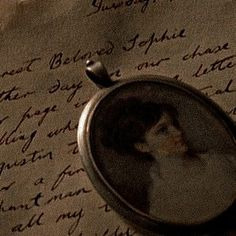
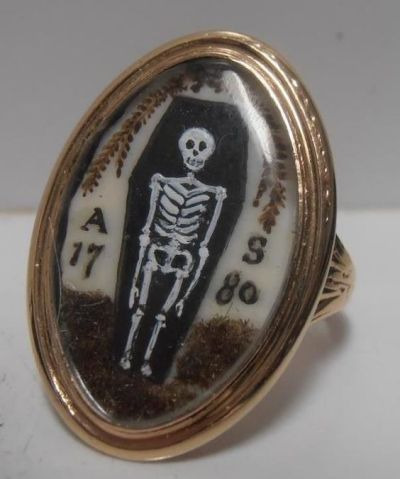


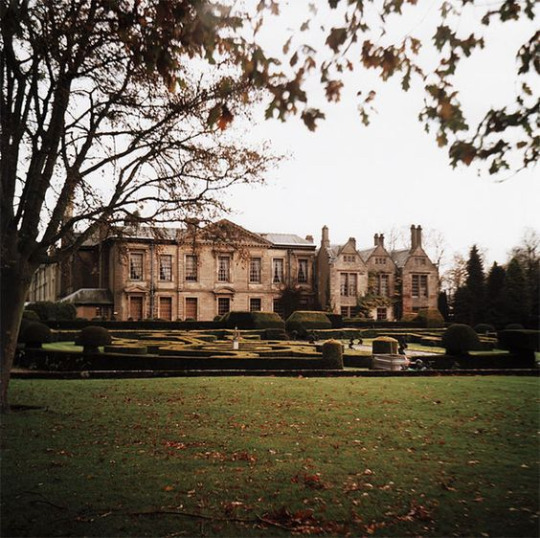
Images from pinterest except for the one which is a screencap from barry lyndon
Francis Quirk, or, the means by which his lordship lost his land: a camp nanowrimo wip intro
Genre: historical fiction
Setting: another 18th century Ireland wip 😔🖐️ set in the same fictional northern Irish parish as RRL but nearly 20 years earlier
Content warnings: suicide, death, gore, period typical bigotry, etc
Returning home from his mandated time in London with a law degree in hand, ascendancy fop Robert d'Hermite finds himself lucky on three fronts. One, France has not yet invaded. Two, his best friend, Mr Francis Quirk, son of the local doctor, has returned from the American war, though in very bad spirits. And three, Robert d'Hermite has suddenly been created Lord Kilcullen, for his uncle, the previous Lord, has died -- in apparent suicide, under very suspicious circumstances. Robert doesn't care about the mystery, but Francis, a social climber if there ever was one, cares very much, and so the two embark on a quest to tease out the true circumstances of the old Lord's death from those members of the local gentry who may have been involved. Here, however, Robert d'Hermite is unlucky on two fronts. One, every single person in the parish seems to have hands soaked to the skin in his uncle's blood. And two, there's something less than pure about Francis' motivations -- if Robert could only put his finger on it...
Ask to be +/- from taglist!!!
Characters
Robert d'Hermite - a foolish young lawyer recently come into a great inheritance. Dangerously sentimental and, to put it nicely, there isn't much going on behind those spectacles he wears. Drinking, hunting, gambling, &c. he/him
Lt. Francis Quirk - a soldier of the British army suffering from a bullet wound to the leg obtained fighting the American rebels. Something of a schemer, something of a thinker, but unwilling to put his talents to real use. he/him
Samuel Murdock - a local Volunteer officer who Francis has grown quite close with in recent days. A firebrand who has fought duel after duel, and never over something worthwhile. he/him
Anne Murdock - handsome, clever, rich, and hiding something. Sam Murdock's sister who both Francis and Robert are hopelessly in love with. she/her
Kitty Lambe - a flippant young heiress who enjoys flirting, drinking, and riding, in that order. Robert's mistress at the start of the story, but perhaps not for much longer. she/her
Geraldine Musgrave - a nervous girl unsure about her future on all counts, but assuredly dissatisfied with what she has now. she/her
Sir Richard Gregory - the best friend of the dead man, a temperamental man who enjoys making alterations to his estate and reading. he/him
Walter Adams - a Dublin lawyer up to the northern country for his health, staying with Sir Richard. Considerably more outwardly political. he/him
16 notes
·
View notes
Text
Viaplay has found its Inspector Rebus and author Sir Ian Rankin is keeping it in the name.
Outlander star Richard Rankin – no relation to the source material’s scribe – will play the lead in the Nordic streamer’s debut UK original Rebus. He follows in the footsteps of fellow Scottish actors John Hannah and Ken Stott, who led the ITV version 20 years ago.
Viaplay’s reboot, which is planned as a returning series and will soon unveil more cast, follows 40-year-old Inspector John Rebus at a psychological crossroads following an altercation with an infamous Edinburgh gangster. At odds with a job increasingly driven by technocrats, involved in a toxic affair he knows he needs to end, and all but supplanted in his daughter’s life by his ex-wife’s wealthy new husband, Rebus begins to wonder if he still has a role to play – either as a family man or a police officer.
Viaplay has found its Inspector Rebus and author Sir Ian Rankin is keeping it in the name.
Outlander star Richard Rankin – no relation to the source material’s scribe – will play the lead in the Nordic streamer’s debut UK original Rebus. He follows in the footsteps of fellow Scottish actors John Hannah and Ken Stott, who led the ITV version 20 years ago.
Viaplay’s reboot, which is planned as a returning series and will soon unveil more cast, follows 40-year-old Inspector John Rebus at a psychological crossroads following an altercation with an infamous Edinburgh gangster. At odds with a job increasingly driven by technocrats, involved in a toxic affair he knows he needs to end, and all but supplanted in his daughter’s life by his ex-wife’s wealthy new husband, Rebus begins to wonder if he still has a role to play – either as a family man or a police officer.
RELATED STORY
Former Film & TV Charity Boss Alex Pumfrey To Head Up Partnerships For ITV
Richard Rankin, who plays Roger Wakefield in Starz drama Outlander and whose past credits include The Last Kingdom and Trust Me, said he “feels very lucky to be given the honour of bringing such an iconic Scottish character back to TV screens.”
Ian Rankin backed Richard Rankin to “bring the character to life,” adding: “He’s the perfect fit for the role, and not just because we coincidentally share the same surname.”
71 scribe Gregory Burke is penning the adaptation from Magpie Murders outfit Eleventh Hour Films. The project is a big UK bet for Viaplay, having launched in the territory just four months ago.
Viaplay Chief Content Officer Filippa Wallestam said it is a “privilege to have such a famous character spearheading Viaplay’s original storytelling in the UK.”
Rankin wrote 24 Rebus novels between 1987 and 2002. The TV series ran from 2000 to 2007 on ITV and saw first Hannah then Stott portray the main character.
55 notes
·
View notes
Text
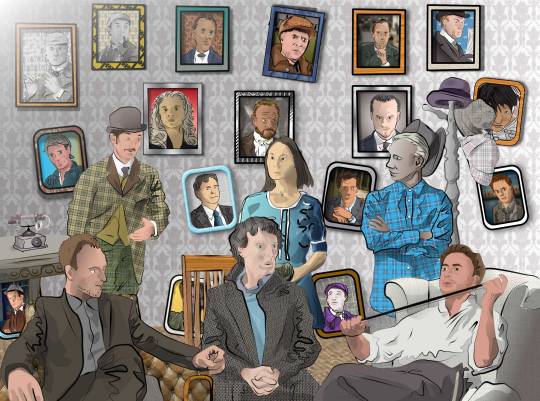
The singular case of the Three Holmes
This is some Sherlockian fan art. I loved all three modern versions of Holmes and wanted to reference them in one drawing. Then, it started to grow, because it seemed a shame that others who'd played Holmes, and the Watsons, and even Moriarty, weren't in the drawing. And this is the result. This, for one reason or another, took me just under a year to create. I was going through some issues to do with age, with arthritis, and confidence. I also had a huge detour of six months working on train scripts for Open Simulator, which sort of knocked my visual creativity out of me for the duration (I even missed this year's Jenny Everywhere Day artwork). I restarted this after turning 66. Arthritis is creeping up on me in my hands, feet, and knee. But, I'll draw for as long as I can.
~~~~~~~~~~~~~~~~~~~~~~~~~~
The characters/actors shown are...
Framed Pictures:
Top Row (Sherlock Holmes, in order played in films): William Gillette; Basil Rathbone; Peter Cushing; Tom Baker; Jeremy Brett; and Sir Ian MurrayMcKellen.
Centre Row (Moriarty): from Elementary, by Natalie Dormer; from Sherlock Holmes: A Game of Shadows, Jared Harris; and from Sherlock, Andrew Scott.
Next Row (Inspired by Holmes): From McGyver, Richard Dean Anderson as Angus McGyver; from House M.D.: Robert Sean Leonard as James Wilson and Hugh Laurie as Gregory House; from DeathNote, Kenichi Matsuyama as L / Ryûzaki; and from Forever, Ioan Gruffudd as Doctor Henry Morgan.
The Floor (Holmes Pretenders): From Doctor Who, Matt Smith as The Doctor pretending to be Holmes; from The Zero Effect, Bill Pullman as Daryl Zero, "the world's most private detective" (but not Holmes as such); and from Star Trek: Next Generation, Brent Spiner as Data, who is acting as Holmes on the Holodeck.
Standing (Doctor Watsons): from Guy Ritchie films, Jude Law; from Elementary, Lucy Liu; and from Sherlock, Martin Freeman.
Seated (The Three Holmes): from Elementary, Jonathan Lee Miller; from Sherlock, Benedict Cumberbatch; from Guy Ritchie films, Robert John Downey Jr.
The Hats (as worn by Holmes):Top Hat; Trilby; Walking Hat, and Deerstalker.
~~~~~~~~~~~~~~~~~~~~~~~~~~
Drawn using Affinity Designer v1 and 2!
#sherlock_holmes#doctorwatson#moriarty#elementary#sherlock#tv#film#mcgyver#l#house_m_d#the_doctor#data#henry_morgan#forever#deathnote#the_zero_effect#deerstalker
15 notes
·
View notes
Text

An erotic choose-your-own-sexual-adventure at a renaissance faire, in which the reader chooses between 10 different male performers and decides what he does with each one. Sexually-explicit content.
" EXCITEMENT AT THE RENAISSANCE FAIRE!
You have always loved going to the Renaissance Faire when it comes to town, but this year promises to be very different from previous years. This year, the sensual aspect of the Festival are amped up significantly, and the attentions of 10 of the performers land squarely on you! Men from all over the Northwest Wisconsin Medieval Faire Village have taken an interest in getting to know you a lot better.
Choose from the 10 possible partners and you can decide what you do with each man sexually. Each one is looking forward to satisfying you and making sure you have the time of your life.
Pick from Johnni Dwarfsong the Minstrel, Rogue Kinnisen the Pirate, Chancellor Sir Henry Friedrich the Dignitary, Bartholomew Rhoades the Shopkeeper, Reilley O’Malley the Scottish Clansman, Captain Lukas Whitebeard the Pirate King, Count Gregory Highbourne the Nobleman, Richard Baines the Forester, Thomas Kingsley Lord of Chaucer the Ambassador, or Master Thaddeus Gage the Village Lord Mayor. Each man has a penchant and skill for using his body in whatever means needed to ensure a great turn-out for your sexual adventure.
Choose wisely and re-read the book again and again for different sexual adventures with the manly members of the Renaissance Festival cast.
*** ADULTS ONLY XXX ***"
This book is currently out of print.
2 notes
·
View notes
Text
Alison Weir and the claim Anne Boleyn was pregnant when she was executed.
I’m convinced that even tho Alison Weir is a historian that she’s determined to out-crazy Philippa Gregory on Tudor History. She screams to me of someone who cares more about selling books than legit history using the idea “no publicity is bad publicity”.The claim that Anne Boleyn was pregnant when she died comes from Alison Weir’s book Henry VII: King and Court. Quoting from the book:
“Henry had every reason to be pleased with Anne, for the evidence strongly suggests she was pregnant again. Just as she conceived rapidly after the birth of Elizabeth, so her reconciliation with the king after her miscarriage in January had quickly borne fruit. Henry made what was probably an oblique reference to her pregnancy that April, when he rounded on Chapuys for suggesting God had not thought fit to send him male issue because He had ordained that England should have a female succession. ‘Am I not a man like other men? Am I not? Am I not?’ shouted Henry ‘You do not know all my secrets’. On the 25th April, in a letter sent to Richard Pate in Rome and duplicated to Gardiner and Wallop in France, Henry announced ‘the likelihood and appearance that God will send us heirs male’, implying that ‘our dear and most entirely beloved wife the Queen’ was once more expecting a child. Had Anne conceived towards the end of February, it would have been possible for the King to state this with some certainty, and clearly, he was eager to do so.”
Firstly, Weir brings up a letter sent to Sir Richard Pate who was ambassador to the Holy Roman Empire from 1533-37. She seems to have combined two events together as Weir recounts a conversation between Henry and Imperial Envoy, Eustace Chapuys. According to Weir, Chapuys was reported to have ventured for Mary to be reinstated to the succession as “God had ordained a female succession” only to have Henry explode on him. This conversation did happen as it was reported in a letter back to Charles V. Now the big clincher: this letter is from April 15th 1533. Catherine of Aragon is referred to in the letter in the present tense which would be impossible in 1536 as she died in early January that year. Next, its contents are not as Weir represents them. Yes, the conversation between Chapuys and Henry is there but with context its meaning is very different. The relevant portion (because it is a very long letter) is here:
"Made unto Us certain overtures for the advancement of such a renovation. The first was that He would be meane to have a reconciliation between Us and the Bishop of Rome. The second overture and request was that for as much as there is great likelihood and appearance that God will send unto Us heirs male to succeed us in the Crown of this our Realm, We would vouch safe at his contemplation to legitimate our daughter Mary, in such a degree as in default of issue by our most dear and entirely beloved wife the Queen , she may not be reputed unable to some place in our succession."
Third is from the accounts ordering a cradle for a prospective new prince/princess. The receipt is undated (which wouldn’t exactly be the kind of clinching evidence I’d use to back up this claim) but we can deduce some kind of date. Thomas Cromwell is named as Lord Privy Seal on the receipt and therefore would narrow down the date range from 1536-1540. Whilst this at first looks like it could be a point for Weir (since it's at least in the correct date range) I would counter with this: why would anyone be ordering a crib so early in a pregnancy when the mother had a history of miscarrying? It seems very optimistic on Henry's part. I would argue this is more likely a cradle for the expecting Jane Seymour's baby, the future Edward VI who was born 12th October 1537.
Finally, let’s look at logistics. Could Anne be pregnant in May 1536? She was pregnant in the January but miscarried a boy on January 29th. Henry was very explicit about his lack of faith in Anne’s childbearing capabilities by this point, famously stating after the miscarriage that: “[he’d] have no more boys by her”. This would imply Henry was not going to be sleeping with Anne from that point. Still, for the sake of argument, they are still attempting for another child up until Anne’s arrest. In an age before pregnancy tests, the earliest Anne could suspect a pregnancy is one month due to missing her period. The earliest she could be 100% certain she was carrying a child would be 3/4 months when the baby would begin to move in utero (colloquially known as “quickening”). This would mean that for Henry to have known Anne was pregnant she would have had to conceived again by the latest in mid-February, but ideally earlier almost immediately after her miscarriage in January. That doesn’t seem very reasonable for a woman recovering from something that would have been quite traumatic on her both in medical and emotional terms.
Next, there is no evidence from her time in the Tower of any pregnancy. Weir brings this up as suspicious that Anne wasn’t examined for a pregnancy. This could either be explained in two ways: 1) Henry was certain she wasn’t because he hadn’t been sleeping with her (and if she was then it could be fathered by one of her co-accused) or 2) she had her period whilst incarcerated thus proving for certain there was no baby. There are no official records of Anne's trial so there is no evidence we can pull from there to say one way or the other. However, there were letters and reports of Anne in the Tower sent from the Lieutenant William Kingston to Thomas Cromwell. None mention a pregnancy or suspected pregnancy. Also, if she knew she was pregnant, why not speak up? It would have at least delayed her fate until her new child was either born or she had a miscarriage.
Finally finally, why would Henry kill a potential male heir? It goes against his entire motivations at this time. Henry was desperate for a male heir. If there was even the possibility that Anne was carrying another boy, why not wait a few extra months to see the outcome? It’s ludicrous that he would kill his own child when it could be the heir he had caused a schism to obtain. Even if there was some dubiousness around the legitimacy, Henry had already shown he was willing to declare what he wanted no matter what the truth was (Mary was illegitimate despite being born in wedlock to legally wedded parents).
#anne boleyn#henry viii#alison weir#anti-alison weir#bad history#debunking#history#history lesson#debunking alison weir
4 notes
·
View notes
Text
youtube
Motown Returns to the Apollo (Live in New York, NY)
1985
Soul / R&B / Pop / Tap Dance
Harlem's Apollo Theater is, hands-down, the single most important institution in the history of black American performing arts. It was first built in 1913 as a burlesque venue for only white patrons, but by 1934, its white owners transformed it into a space to showcase black performers. And from that year on, and into the mid-70s, it played a decisive role as a launching pad for an abundance of highly successful careers, from music, to dance, to comedy.
However, after having rode its high throughout the 60s, the Apollo would find itself in dire financial straits, and for a multitude of different reasons, its doors were shuttered in 1976. There were then a whole bunch of fits and starts to have it reopened, and eventually, after a thorough, years-long renovation process, it sprang back to life in 1985, and a legendary concert called Motown Returns to the Apollo would mark its long-awaited grand reopening.
So, take a look at some of this incredible concert bill, folks, which simultaneously celebrates The Apollo's past, while also showcasing a mid-80s present: DeBarge, George Michael, Smokey Robinson, The Manhattans, The Drifters, The Temptations, The Four Tops, Mary Wells, Martha Reeves, Stevie Wonder, Rod Stewart, Nile Rodgers, Billy Preston, Joe Cocker, Patti Labelle, Jennifer Holliday, Thelma Houston, Marilyn McCoo, Vanessa Williams, Debbie Allen, New Edition, Boy George, Wilson Pickett, Chuck Johnson, Little Richard, Mavis Staples, Al Green, Sarah Vaughan, Billy Eckstine, James Brown, Luther Vandross, The Commodores, Lou Rawls, and Diana Ross. Such a magnificent concert for the ages, but unfortunately, it was hosted by Bill Cosby 😫.
Now, something that particularly struck me about this whole production is what they ended up deciding to call it—Motown Returns to the Apollo—because there's a whole bunch of people on this bill that were never actually on Motown itself. But I guess the sound of soul and R&B from the 60s to mid-80s had just become synonymous with the name of the label anyway, even if they'd never actually released a lot of the music that came out of it. And when someone's describing their taste in music, and they say that they like Motown, they're probably actually referring to more than just that one powerhouse label, and more so the type of music that they and a whole lot of other outfits were putting out. But it's still interesting to refer to it that way when naming a concert, though.
Anyway, you should definitely try to fully immerse yourself in this whole show, but I'm gonna timestamp some of my absolute favorite performances here, a few of which include some truly incredible belting feats from Patti Labelle, whose every appearance on this one night was pure magic; especially with the gospel tune, "You'll Never Walk Alone," which she delivered with the help of Little Richard, Mavis Staples, Billy Preston, Al Green, and the New Jersey Mass Choir. I'm not even a remotely religious person, but that's probably one of the most powerful performances that I've ever seen in my life. Good lord 🤯.
Sam Harris - "Somewhere Over the Rainbow"
Stevie Wonder - "Sir Duke"
Billy Preston, Joe Cocker, & Patti Labelle - "You Are So Beautiful"
Little Richard, Mavis Staples, Billy Preston, Al Green, Patti Labelle, & the New Jersey Mass Choir - "Joy Joy Joy Down in My Heart"/"You'll Never Walk Alone"
James Brown - "Please Please Please"
Diana Ross with everyone - "I Want to Know What Love Is"
And the show wasn't limited to strictly music, either. There was some amazing tap dancing too!
Gregory Hines - "Tribute to Teddy Hale"
Tap Dancing Showcase, with Bunny Briggs, Chuck Green, Gregg Burge, Ludie Jones, Jimmy Slyde, Sandman Sims, Harold Nicholas, & Sammy Davis, Jr.
#soul#r&b#r & b#rhythm & blues#rhythm and blues#pop#tap dance#oldies#classic pop#music#60s#60s music#60's#60's music#70s#70s music#70's#70's music#80s#80s music#80's#80's music#Youtube
6 notes
·
View notes
Text
Rebus reboot in Glasgow!
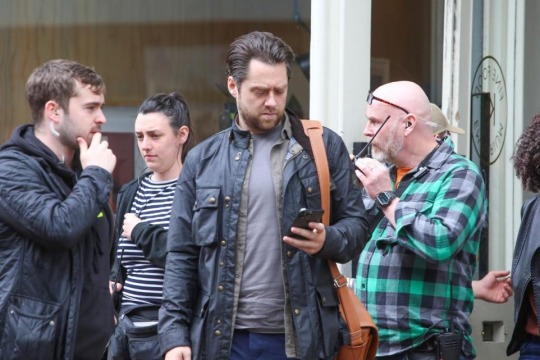
ITV crime drama spotted filming reboot series in Glasgow (Image: Gordon Terris)
Richard Rankin was pictured on Byres Road today by our photographer Gordon Terris as production gets underway for the reboot of Rebus.
He was seen outside West End cafe Kember and Jones with film crews on Tuesday afternoon.



Based on the best-selling books by Ian Rankin, Rebus follows the central character, Detective Inspector John Rebus, as he solves various crimes in and around Edinburgh.
Outlander star Rankin will follow in the footsteps of John Hannah, Ken Stott Brian Cox, Ron Donachie and Charles Lawson to play a young Rebus.
The new series is said to be a "fresh and thrilling offering in the high-end crime genre" and follows 40-year-old Rebus as he finds himself at a psychological crossroads after an altercation with an infamous gangster.
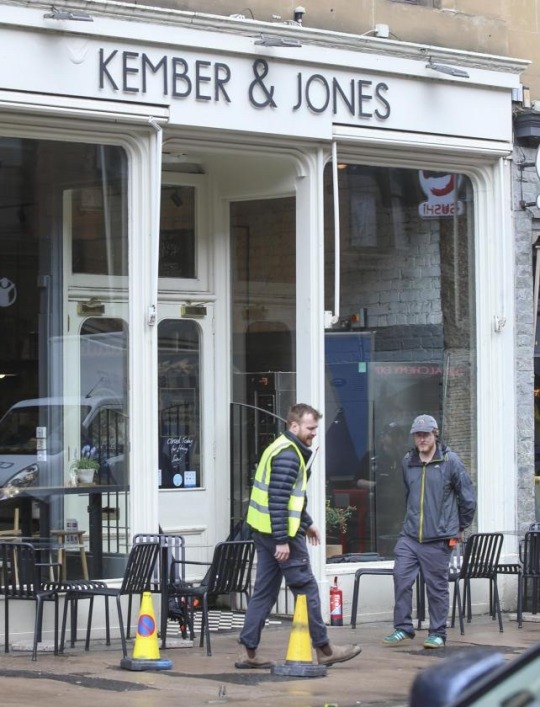

The Scottish actor said: “I’m thrilled to be taking on the role of Rebus. I’m a big fan of the series and Sir Ian Rankin.
“I feel very lucky to be given the honour of bringing such an iconic Scottish character back to TV screens and will give all I have to do it justice.”

Sir Ian Rankin said: “Rebus has been a big part of my life for a long time now and to work with Gregory Burke to create a new story that sees him navigate life as a younger man in a contemporary (and ever-changing) Scotland has been a truly fascinating process.
"I’m very much looking forward to watching Richard bring the character to life – he’s the perfect fit for the role, and not just because we coincidentally share the same surname.”

28 notes
·
View notes
Text
Events 9.3 (before 1930)
36 BC – In the Battle of Naulochus, Marcus Vipsanius Agrippa, admiral of Octavian, defeats Sextus Pompey, son of Pompey, thus ending Pompeian resistance to the Second Triumvirate.
301 – San Marino, one of the smallest nations in the world and the world's oldest republic still in existence, is founded by Saint Marinus.
590 – Consecration of Pope Gregory I (Gregory the Great).
673 – King Wamba of the Visigoths puts down a revolt by Hilderic, governor of Nîmes (France) and rival for the throne.
863 – Major Byzantine victory at the Battle of Lalakaon against an Arab raid.
1189 – Richard I of England (a.k.a. Richard "the Lionheart") is crowned at Westminster.
1260 – The Mamluks defeat the Mongols at the Battle of Ain Jalut in Palestine, marking their first decisive defeat and the point of maximum expansion of the Mongol Empire.
1335 – At the congress of Visegrád Charles I of Hungary mediates a reconciliation between two neighboring monarchs, John of Bohemia and Casimir III of Poland.
1411 – The Treaty of Selymbria is concluded between the Ottoman Empire and the Republic of Venice.
1650 – Victory over the royalists in the Battle of Dunbar opens the way to Edinburgh for the New Model Army in the Third English Civil War.
1651 – The Battle of Worcester is the last significant action in the Wars of the Three Kingdoms.
1658 – The death of Oliver Cromwell; Richard Cromwell becomes Lord Protector of England.
1666 – The Royal Exchange burns down in the Great Fire of London.
1777 – American Revolutionary War: During the Battle of Cooch's Bridge, the Flag of the United States is flown in battle for the first time.
1783 – American Revolutionary War: The war ends with the signing of the Treaty of Paris by the United States and the Kingdom of Great Britain.
1798 – The week long battle of St. George's Caye begins between Spain and Britain off the coast of Belize.
1812 – Twenty-four settlers are killed in the Pigeon Roost Massacre in Indiana.
1838 – Future abolitionist Frederick Douglass escapes from slavery.
1843 – King Otto of Greece is forced to grant a constitution following an uprising in Athens.
1855 – American Indian Wars: In Nebraska, 700 soldiers under United States General William S. Harney avenge the Grattan massacre by attacking a Sioux village and killing 100 men, women and children.
1861 – American Civil War: Confederate General Leonidas Polk invades neutral Kentucky, prompting the state legislature to ask for Union assistance.
1870 – Franco-Prussian War: The Siege of Metz begins, resulting in a decisive Prussian victory on October 23.
1875 – The first official game of polo is played in Argentina after being introduced by British ranchers.
1878 – Over 640 die when the crowded pleasure boat Princess Alice collides with the Bywell Castle in the River Thames.
1879 – Siege of the British Residency in Kabul: British envoy Sir Louis Cavagnari and 72 men of the Guides are massacred by Afghan troops while defending the British Residency in Kabul. Their heroism and loyalty became famous and revered throughout the British Empire.
1895 – John Brallier becomes the first openly paid professional American football player, when he was paid US$10 by David Berry, to play for the Latrobe Athletic Association in a 12–0 win over the Jeanette Athletic Association.
1911 – A fire that started on Fraser's Million Dollar Pier destroys six to eight square blocks of Ocean Park, California.
1914 – William, Prince of Albania leaves the country after just six months due to opposition to his rule.
1914 – French composer Albéric Magnard is killed defending his estate against invading German soldiers.
1914 – World War I: Start of the Battle of Grand Couronné, a German assault against French positions on high ground near the city of Nancy.
1916 – World War I: Leefe Robinson destroys the German airship Schütte-Lanz SL 11 over Cuffley, north of London; the first German airship to be shot down on British soil.
0 notes